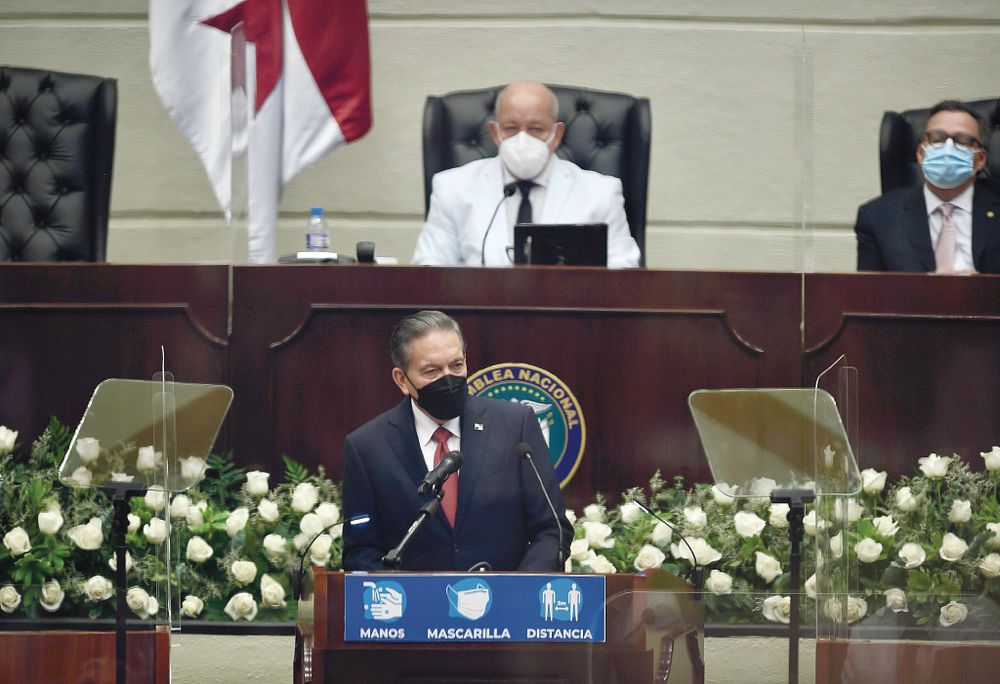President Cortizo took over "disorganized disaster"
When Panama President Laurentino Nito Cortizo took over the reins of the country he found a disaster in public finances, a disorganized administration, with an unprecedented corruption record he said In the National Assembly on Thursday, January 2 in his first report to the nation.
He he found that. “In the last 10 years, Panama's debt, that of all Panamanians tripled, from $11 billion to more than $30 billion. This amounts to a debt of $22,300 per household, ”he said.
In the last five years Panama's economy reflects "a clear slowdown" and unemployment increased. He stressed that his government received “unregistered debts” to suppliers, contractors, teachers, producers, banks and the Social Security Fund, for $1.738 billion.
“In addition, in 2018, the previous government overestimated revenues of $1.1 billion. That is, they calculated quite badly,” he said.
He pointed out that 159 “critical” public infrastructure projects were pending. Many, aborted by lack of payments, others by low execution, some were abandoned and others "arrested for multiple legal disputes." He mentioned the Amador Guerrero hospitals in Colón, Metetí, in Darién, and Bugaba, Chiriquí, in and the Hospital del Niño and the City of Health.
Disorganization & Corruption
He spoke of the "serious deterioration" of institutionality, as they found an Executive that disrespected the balance of powers. "A democracy distorted by anti-democratic mechanisms, corruption at levels never seen before, and disorganization, improvisation and whims was the behavior of the last governments."
The safe neighborhoods program and resocialization in prisons have failed, and citizens demand an independent justice system with attorneys, magistrates and judges who do their job well.
Despite the dark picture he described, he said he feels “optimistic” and listed some of the actions they have implemented in the first six months of government: the issuance of $2 billion in bonds, the cancellation of debts for more than $1,7 billion, the execution of 36 infrastructure projects and the endorsement, by the Assembly, of the Public-Private Partnership law.
